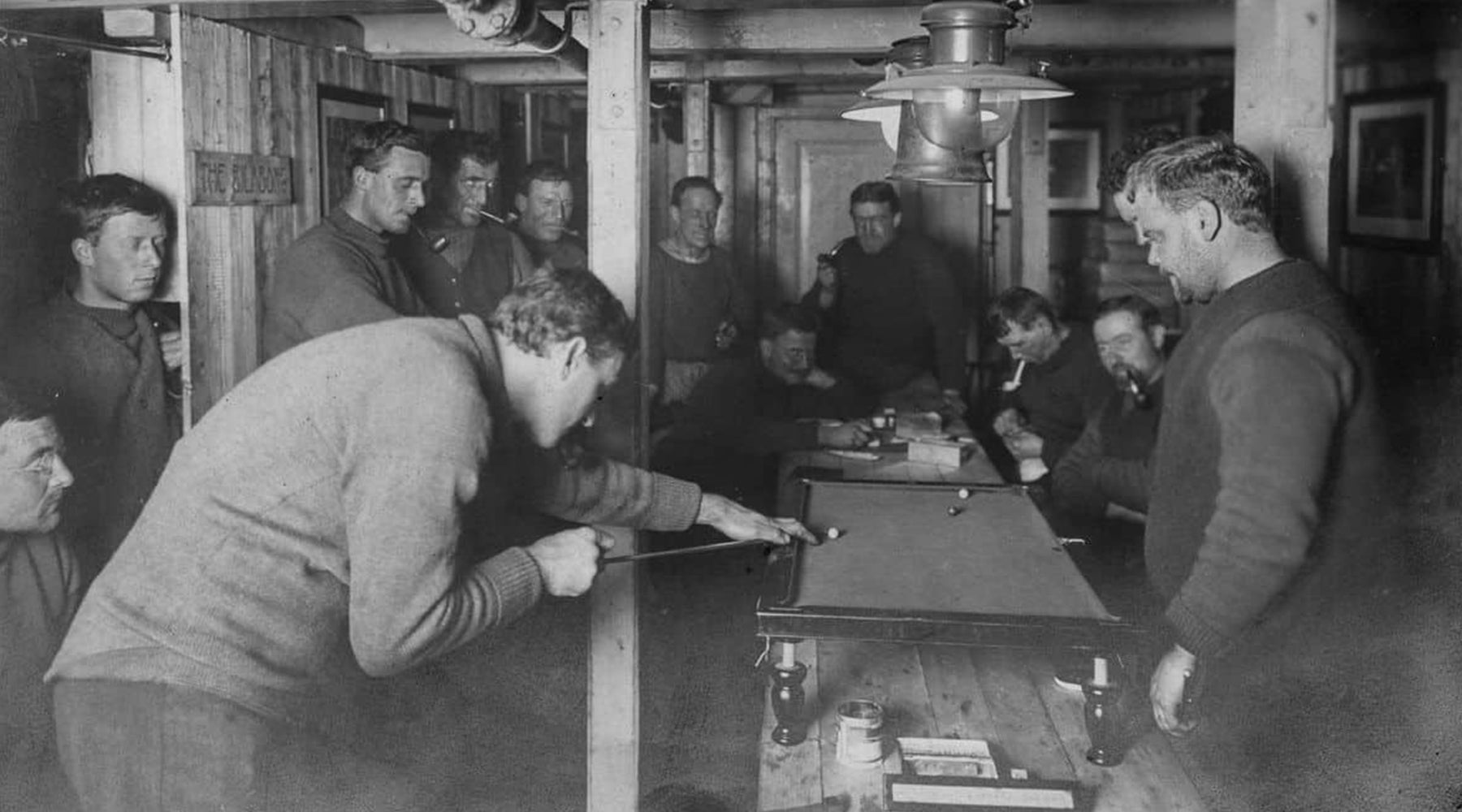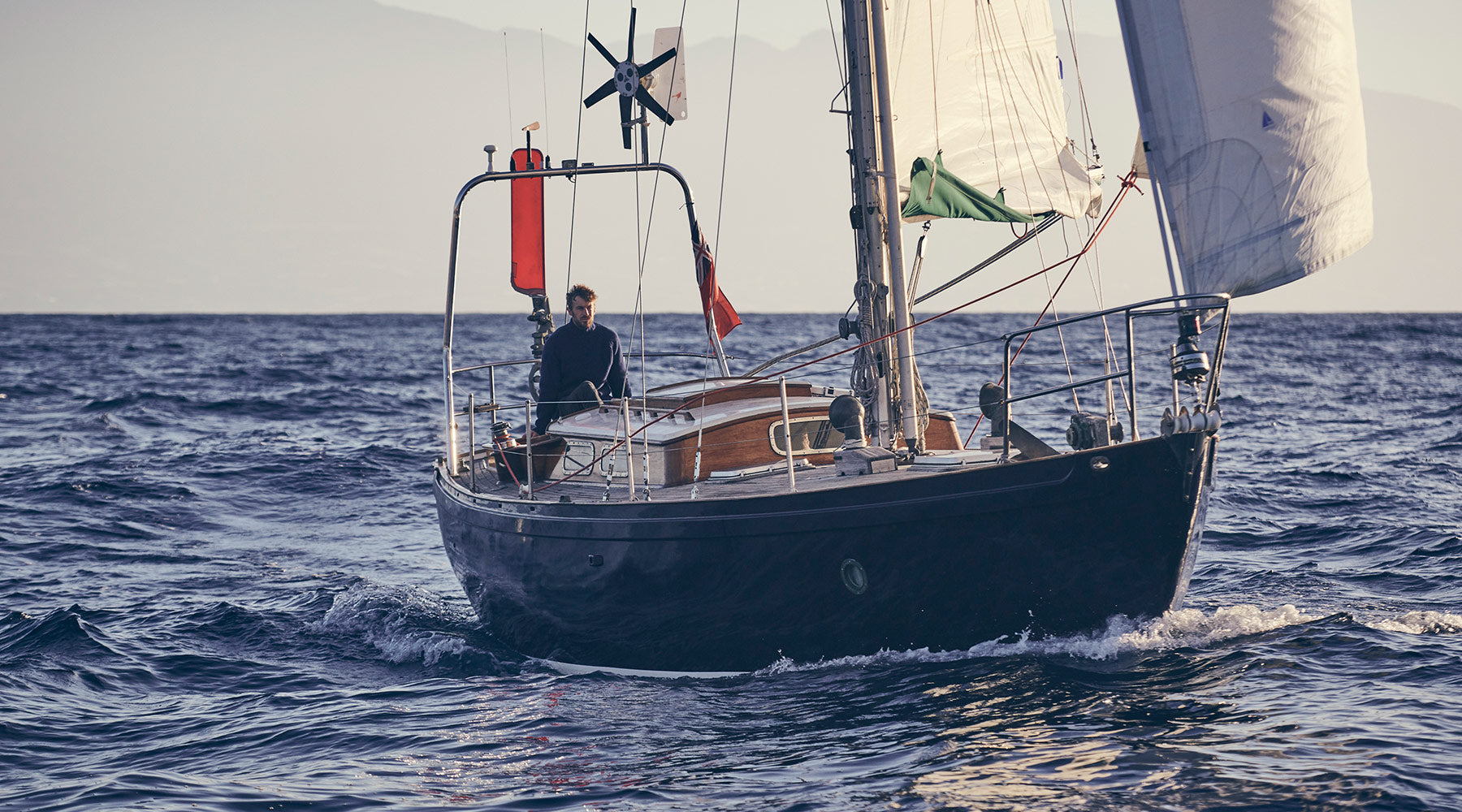
What made Shackleton a great leader?
Some people are born to lead. Sir Ernest Shackleton was a born leader. Author Michael Smith looks at the qualities that made The Boss so charismatic.
Shackleton was blessed with a natural grasp of people management. For a man who never attended anything remotely like today’s business management schools, Shackleton’s instinctive style of leadership was remarkably effective. Yet today, management schools are teaching Shackleton’s methods to inspire entrepreneurs of the future.
Quite simply, he understood his men, their strengths and weaknesses and what motivated them. He also had an uncanny knack of sensing danger and invariably minimised risk. Perhaps his greatest quality was that he put the welfare of his men above everything else.

While Shackleton is often seen as a buccaneering throwback to Elizabethan adventurers like Drake or Raleigh, the opposite is the case. Shackleton was a cautious leader and a man who would never ask his men to do anything he would not do himself. He was also good at improvisation, a man not afraid to throw away the rulebook or abandon plans if they were not working. He was a man for a tight spot.
Sir Raymond Priestley, the acclaimed scientist who served on Antarctic expeditions with both Scott and Shackleton, once wrote: “For scientific leadership, give me Scott. For swift and efficient travel, Amundsen. But when you are in a hopeless situation, when there seems no way out, get on your knees and pray for Shackleton.”
Early examples of Shackleton’s leadership came during the historic Nimrod expedition in 1907-09 when his four-man party – Shackleton, Wild, Adams and Marshall – endured incredible hardship to march within 97 miles of the South Pole. It was an epic journey that discovered the vital route to the Pole and paved the way for Captain Scott and Roald Amundsen to reach the goal only two years later.

While Shackleton had enough food to stagger to the Pole, he did not have enough to get back. Exhausted, bitterly cold and starving, he took the decision to turn back in sight of his objective because he was not prepared to risk the lives of his three colleagues. When fame and glory beckoned, Shackleton put their safety first. On returning home, his wife Emily asked Shackleton why he had turned back with the Pole in sight, he simply said: “I thought you would prefer a live donkey to a dead lion.”
Beau Riffenburgh, the polar historian, wrote that Shackleton diverged from the popular Victorian fascination of worshipping the hero as a martyr who died for his cause. Shackleton, said Riffenburgh, wanted fame and fortune but he wanted to be alive to appreciate them.
Shackleton’s skills as a leader were best demonstrated during the 'Endurance' expedition, when his management was crucial in saving the lives of the 28-strong party after the ship was crushed by ice. He was an inspiration who instilled a belief that the marooned men would survive and get home. It was a simple message that Shackleton frequently reinforced to ensure the men never lost sight of the goal – safety and survival.

Although a handful of the castaways were hardened polar types with experience on the ice, most of the men were novices and totally ill-prepared for the ordeal. Many were ordinary seamen employed to bring Endurance to the Antarctic coast or young scientists on field-trips. One was an artist and another had stowed away. To avoid any troublesome build-up of cliques or running conflicts, he insisted the men did not spend longer than a week sharing a tent with the same man.
Shackleton instinctively understood the importance of teamwork and threw a protective cloak around his men. All were treated equally and he took particular care of anyone struggling to cope. He made each person feel as though they were as important as the next and there were no favourites.
Scientists shared the same chores with sailors and sailors helped take scientific readings. When the winter clothing was distributed, Shackleton ensured the crew were supplied before the officers and during one horrendous boat journey he gave his mittens to a desperate colleague.
He was intensely loyal to his men and expected full support in return. On occasions he could be vindictive when his leadership was questioned. Shackleton refused to approve the Polar Medal to four men on Endurance because of perceived disloyalty. But Shackleton also had the foresight to recognise that idleness and long periods of contemplating their fate would be toxic. Pessimism was never allowed to take root.
While there were inevitably some dissenters, discipline was imposed with a light touch and Shackleton understood the difference between a barked order and a measured command. The men called him the 'Boss'.

Normal duties were continued – from collecting scientific specimens to seal hunting – and the ship’s routine enforced. Meals were taken at the same time each day and the men were generally well fed because, as Shackleton knew, men with a full stomach are less likely to complain than a hungry man.
After dinner singsongs and party games were arranged, birthdays were celebrated and the group once staged a full-scale 11-a-side football match on the ice.
Although Shackleton was personally concerned about the desperate plight, he never let it show – any anxiety was well concealed to ensure that the despair did not spread. Leaders can be the difference between life and death in the polar wilderness. The best example is that of the Karluk expedition to the Arctic in 1913, which took place shortly before the Endurance sailed. Under Shackleton’s assured leadership, all 28 men on Endurance survived a terrible ordeal. By contrast, the leader of Karluk abandoned his men when the ship became trapped in the ice and 11 people died.
Thanks to an ongoing collaboration between The Royal Geographical Society (with International Bureau of Geographers) and Salto Ulbeek Publishers, the first ever collection of limited edition platinum palladium prints of Frank Hurley's photographs from Shackleton's ‘Endurance’ expedition is now available to purchase.
Michael Smith is an author-journalist and authority on the history of polar exploration. www.micksmith.co.uk


